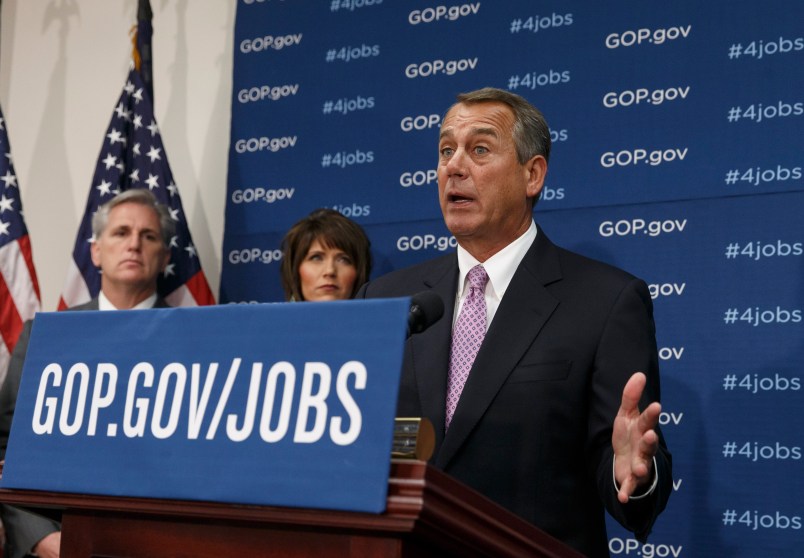Republicans have had a field day with the Congressional Budget Office report released this week, claiming it shows Obamacare will destroy the American work ethic and force people to rely on the government.
Never mind that reality is a bit more complicated than that. You could argue that the GOP should actually embrace the law because it could do the opposite: give Americans the freedom to start their own businesses.
By offering people an alternative to employer-based insurance, the law could reduce what’s known as “job lock,” when people stay in a job largely because it’s the only way they can get health coverage — a goal that conservatives, too, have advocated for in the past. The White House, in its growing effort to combat the GOP spin, forwarded that argument Thursday.
“By increasing workers’ mobility across jobs, secure access to health insurance helps them to find the job that is best for them,” Jason Furman, chairman of President Barack Obama’s Council of Economic Advisers, wrote in a blog post. “Moreover, reducing job lock encourages entrepreneurship, a critical ingredient for growth and job creation.”
Outside the political realm, evidence does exist that Obamacare could be a catalyst for more entrepreneurship.
Three economists released an analysis in 2011 that concluded employment-based health insurance had a negative effect on business creation. Because people tended to stay in their jobs to keep their health coverage, they were less likely to leave them and start their own businesses. By reforming the individual and small-group insurance markets, Obamacare is intended to make the insurance offered there comparable to what large employers offer, giving people a legitimate alternative to employer-based coverage.
They analyzed various scenarios to reach that conclusion: Do people who had access to insurance through their spouse create more businesses? Do people who turn 65 and enroll in Medicare found more companies than people who are a little younger than 65?
In both cases, they found that people without the alternatives — those who couldn’t obtain insurance through their spouse or couldn’t enroll in Medicare — were less likely to start their own business. That led to the following deduction:
Our estimates provide some evidence that “entrepreneurship lock” exists, which raises concerns that the bundling of health insurance and employment may create an inefficient level of business creation.
Not many people quit their jobs to start their own companies: about 3 percent, according to the study. But if they had that alternative means of obtaining health insurance, which Obamacare helps provide, up to 4 percent would, the report projected, which would equal a 33 percent increase in the number of people starting their own business.
When asked about what those findings meant for Obamacare, Susan Gates, senior economist at RAND and one of the study’s authors, told TPM that the law should lead to more people creating a business.
“Our study would suggest that if people have access to an alternative form of health insurance that is closer to what they could get from an employer,” she said, “that they’re going to be more likely to make that leap. They’re going to be more likely leave a wage-and-salary job to start their own business.”






